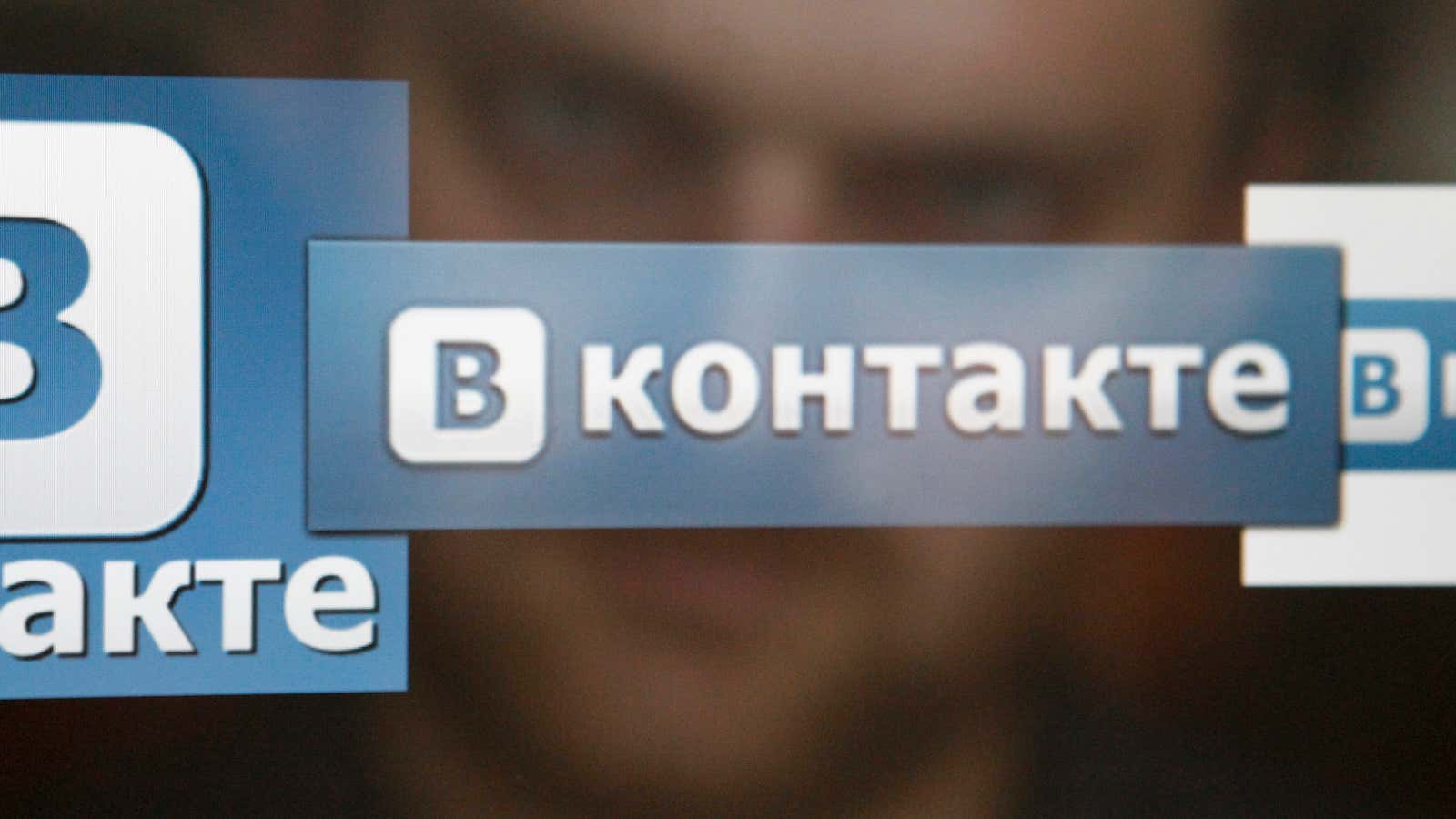This item has been corrected.
Pavel Durov was still at the top of the world at the DLD tech conference in Munich in January 2012. In a fireside chat with Jimmy Wales, the founder of Wikipedia, he announced that he would donate $1 million to the online encyclopedia’s non-profit parent company. Durov was the founder and CEO of VKontakte, Russia’s largest social network. It had made him an international celebrity and a rich man.
By 2014, he had lost control of the company he had founded. A mix of arrogance, political intrigue, censorship, and the baffling opacity that goes with operating in Russia conspired to drive Durov out of the company and, eventually, out of Russia (Mashable has a comprehensive timeline of events here).
Durov now runs Telegram, a messaging app with encryption, security, and privacy at its core. Some 62 million people use it every month, according to Durov, sending 2 billion messages every day. It is most popular, he says, in Uzbekistan and Iran— countries not typically renowned for their defence of free speech.
Speaking to journalists at a press event in Helsinki, Durov said he had learned two important lessons from the debacle with VKontakte.
Be global
VKontakte is the biggest social network is Russia and parts of the former Soviet Union, but has little or no presence in the West. (It is perhaps most famous in the US for where the convicted Boston Marathon bomber, Dzhokhar Tsarnaev, kept his online presence.)
As a result, Durov was unable to simply shut down the business in Russia and move on. Such a situation would not arise with Telegram, he says. ”The UK government asked us for information about a person they claimed was an [ISIL] supporter, but we couldn’t provide anything” because Telegram don’t store anything, he said.
“So that allowed us to refuse to co-operate with the British while being law obedient,” he adds. “Things might change in the future if they change the law. But if that changes, we can stop providing the service we provide in the territory of the United Kingdom.”
Shutting down VKontake in Russia because of government pressure, on the other hand, would amount to killing the company. More than half of its users live in Russia. The key, he argues, is to ensure that business doesn’t depend on one place.
But Russia, he says cryptically, “is not the worst jurisdiction.”
Be careful with shareholders
The other lesson Durov learned from VKontakte was to be careful whose money to accept. When things started to get sticky with the Kremlin in 2012-13, two of the original investors sold their stakes to a private equity firm thought to be politically connected, causing Durov to lose control of the company he had started.
The company was said to be valued at some $2.2 billion at the time. By 2014, he had sold his meagre remaining shares and, soon after, officially resigned from the firm. With Telegram, Durov says, “I just use my own money.”
Correction: An earlier version of this post said Telegram users send 2 million messages every day. In fact they send 2 billion messages daily. This has been corrected.
